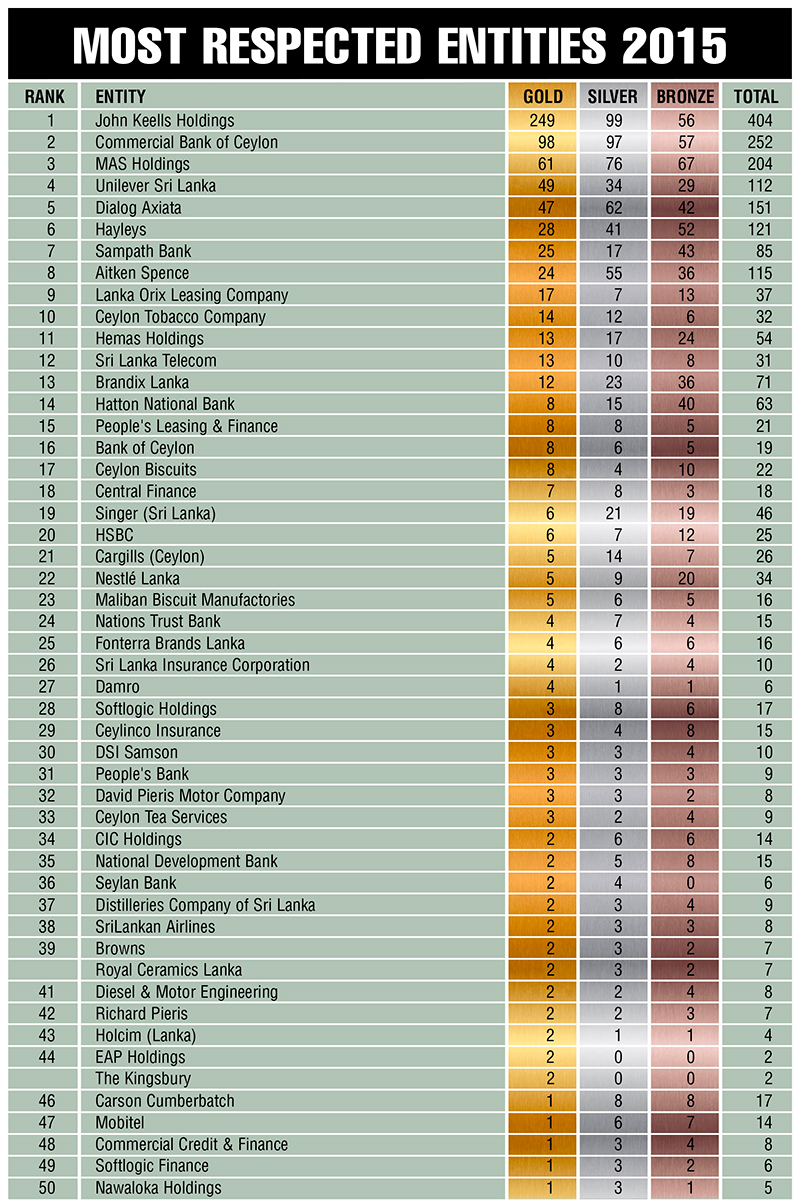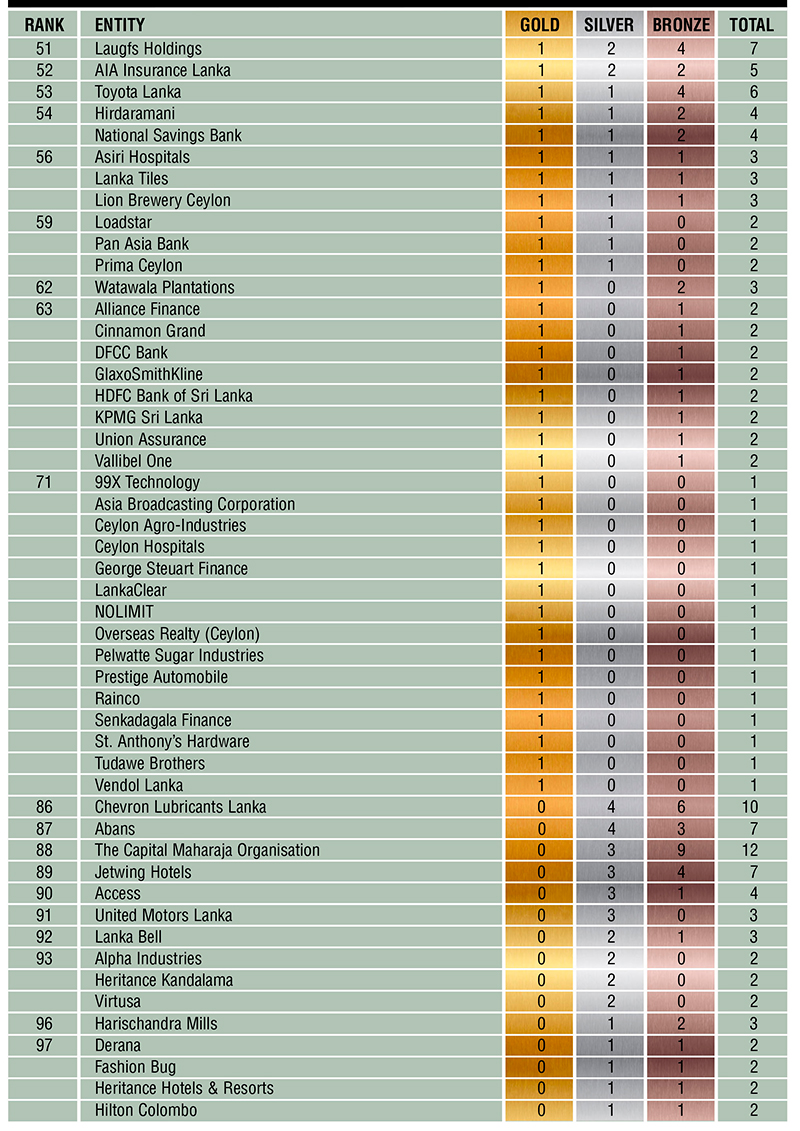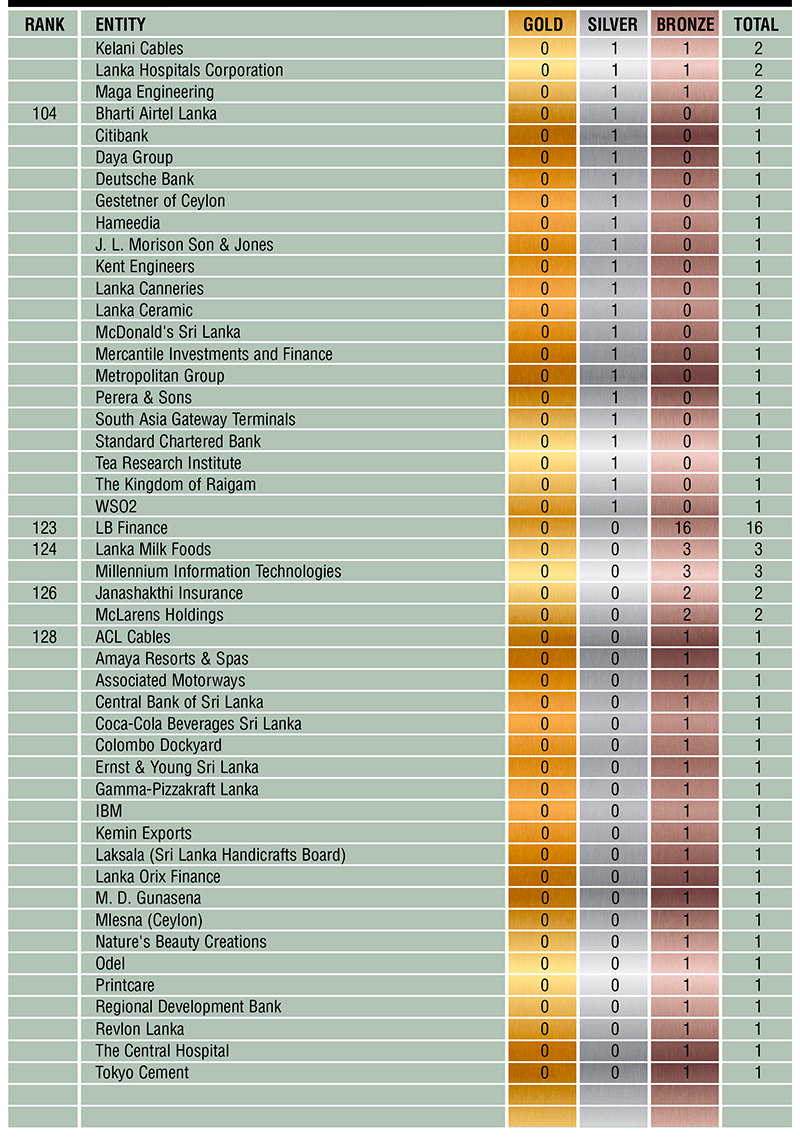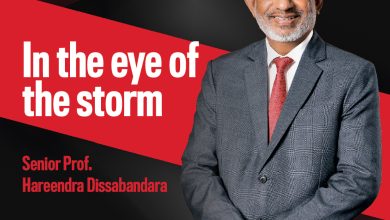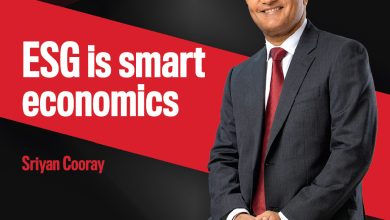Measures of Excellence
The 11th annual edition of the Most Respected bears testimony to the can-do corporate spirit
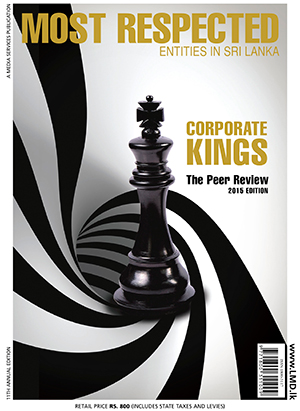 Year 2015 kicked off with a bang, with a largely unexpected shift in the political landscape, following a landmark presidential election on 8 January which saw the incumbent deposed from his throne, literally overnight. Enter the promise of Yahapalanaya…
Year 2015 kicked off with a bang, with a largely unexpected shift in the political landscape, following a landmark presidential election on 8 January which saw the incumbent deposed from his throne, literally overnight. Enter the promise of Yahapalanaya…
The days that followed brought about a change of government; and some would argue, a transformation in national policy, towards its citizens and the international community at large. In the first quarter of 2015, Sri Lanka also extended a warm welcome to national leaders and cultural icons, including Indian Prime Minister Narendra Modi and Pope Francis, no less.
At the outset, corporate reactions to this ‘change’ seemed mostly positive. But questions have since been raised about policies adopted in key areas such as investment, infrastructure development, urban renewal, defence, and law and order mechanisms. Nevertheless, the Interim Administration has maintained that it can achieve the ambitious targets it has set, especially those pertaining to the all-important Foreign Direct Investment (FDI) metric.
In April, the World Bank also reiterated that with limited public and private national savings, compared to national investments, Sri Lanka needs to attract FDIs to maintain a high rate of growth. However, Sri Lanka continues to attract lower-than-expected investments from overseas – despite its geographic edge and infrastructure advantage, not to mention an enviable literacy rate.
The ease of investing and setting up business in the island has, in the past, been a sticking point for foreign stakeholders. But they may take heart from the fact that Sri Lanka improved its standing in the 2015 Ease of Doing Business rankings, as the country climbed six steps up the ladder, to No. 99, among the 189 economies ranked by the World Bank (WB) Group. It has made progress in the areas of paying taxes and trading across borders, WB notes.
From a local perspective, business confidence soared to an all-time high in January, in the immediate aftermath of the presidential election. But corporate sentiment has tapered down and more or less plateaued in the months that followed, primarily due to concerns about the country’s political future, the economic outlook and prospects for business.
On top of all this, recent media reports suggest that the Interim Government’s borrowing spree is reaching unmanageable proportions; and that while state spending has skyrocketed, revenue collections are well below target.
On the other hand, corporate earnings have improved thus far in 2015, while credit to the private sector has also turned around from a year ago.
As in the prior year, the 11th issue of this special edition measures peer perceptions of corporate admiration – i.e. the Most Respected rankings – using the Olympic Ranking System, so Sri Lanka’s most admired organisations are being conferred gold, silver and bronze medals, as a show of strength in the eyes of their peers.
John Keells Holdings (JKH) sits comfortably atop the Most Respected Hall of Fame for a record 10th occasion. It has 249 gold, 99 silver and 56 bronze medals to its name. JKH’s aggregate medals tally (404) – although lower than in the prior year – is leaps and bounds ahead of second-placed Commercial Bank, which has 98 gold, 97 silver and 57 bronze. The only other corporate with more than 50 gold medals in the bag is MAS Holdings (it has 61).
Movers and shakers on the 2015 list of Most Respected entities are led by Hemas Holdings (up seven places, to No. 11), Lanka Orix Leasing Company (LOLC) and Sri Lanka Telecom (SLT) – both five places higher, at No. 9 and 12 respectively, Hatton National Bank (HNB) (up two notches, to 14th place) and Sampath Bank (gaining a spot, to No. 7).
Three new entrants grace the Most Respected Top 20 (aka the Hall of Fame) this year – People’s Leasing & Finance (at No. 15), Ceylon Biscuits (17) and Central Finance (18).
Sixty-eight listed companies make the cut in the 2015 edition of the Most Respected, followed by 47 private entities, 22 multinationals and 11 state-owned enterprises. JKH, MAS, Unilever and BOC helm these categories respectively, picking up from where they left in last year’s edition.
As for sector preferences, conglomerates, food and beverage entities, and the banks continue to be the most favoured, with nearly a quarter of the Most Respected organisations in the island coming from within the ranks of diversified businesses.
Meanwhile, Sri Lanka’s standing in Transparency International’s Corruption Perceptions Index 2014 (which measures perceived levels of public sector corruption, in 175 countries) recorded a marginal improvement from the preceding year, moving up to joint 85th place (alongside India, the Philippines and Thailand), from No. 91 in 2013. The nation’s index score, however, is a modest 38 – out of a maximum 100!
One would expect that the apparent scrutiny of powerful individuals, in relation to acts of bribery and corruption, would enable the country to shift towards ‘cleaner’ territory – both perceived and actual. But as with most policy-related matters in Sri Lanka, the sceptics are pointing fingers at the majority of our lawmakers, for wrongdoings past and present – irrespective of whether they’re being investigated or not!
Corporate houses will also need to play a part in all of this, not only in pointing out the wrongdoings of public sector officials, but also looking inwards… to stem the tide of allegedly corrupt practices. This, in turn, would help streamline future business dealings, and attract high calibre investors from across the globe.
Honesty, after all, is a key measure of respect.
– LMD/Media Services
